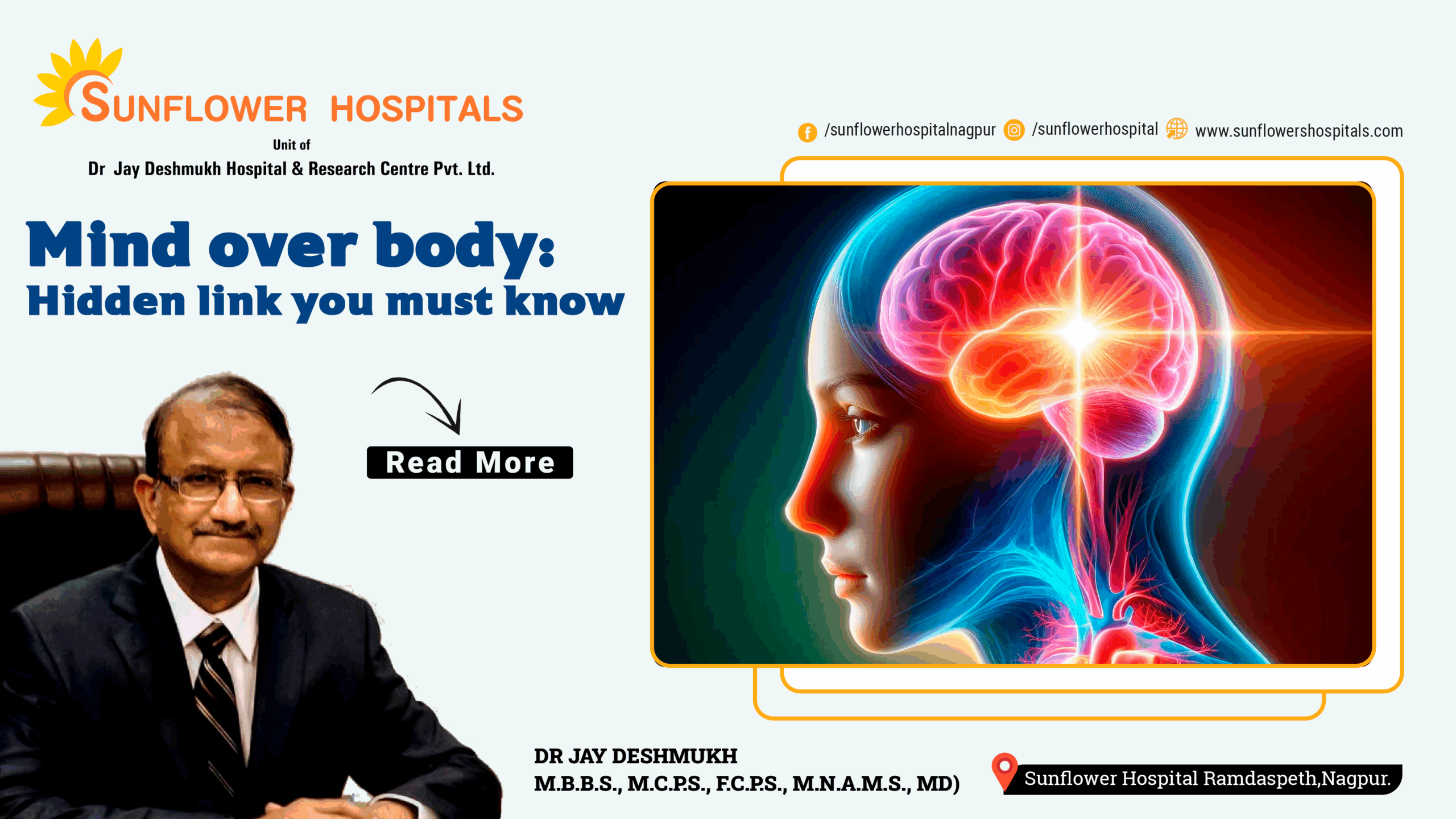How does stress actually affect body?
Chronic stress activates the HPA axis (hypothalamic-pituitary-adrenal axis), leading to prolonged release of cortisol and adrenaline. These hormones raise blood pressure, blood sugar, suppress immunity, and increase inflammation all risk factors for disease.
Can depression increase the risk of physical illness?
Yes. Depression is linked to a higher risk of cardiovascular disease, weakened immunity, chronic pain, fatigue, and slower recovery from illness. Studies show that people with depression are more likely to develop heart attacks.
When should I seek help for mental health?
If you feel:
Constant sadness, anxiety, or fatigue
Physical symptoms without a clear cause
Loss of interest, appetite, or sleep
Hopelessness or suicidal thoughts Talk to your doctor or a mental health professional.
Mental health and physical well-being are inseparable. Ignoring mental health can harm your body, but healing the mind brings surprising physical benefits. Stress and depression are treatable and have far-reaching effects. Whether it’s through exercise, sleep, or therapy, each step toward mental wellness enhances overall health and longevity
Does anxiety cause real physical symptoms?
Absolutely. Anxiety
can lead to:
Palpitations, breathlessness
Chest pain
Irritable bowel syndrome (IBS)
Muscle tension, headaches
Sleep disturbances
These are not imaginary; they have measurable physical changes behind them.
What about sleep and its connection to mental health?
Lack of sleep raises blood pressure and worsens memory and immunity. Sleep is a vital bridge between mental and physical health.
How does mental health affect chronic diseases like diabetes or hypertension?
People with depression or chronic stress are less likely to take medications regularly, less motivated to exercise, and more prone to unhealthy eating, worsening diseases like diabetes, obesity, and high BP. Stress hormones also worsen metabolic control.
Are physical symptoms sometimes caused purely by mental health issues?
Yes these are called psychosomatic symptoms. For example:
Chronic fatigue
Fibromyalgia
Functional chest pain or abdominal pain.
The cause is psychological, but the symptoms are real and disabling.
Can improving mental health reverse physical illness?
Yes, often. Psychological therapies like CBT (Cognitive Behavioural Therapy), mindfulness, exercise, and medication (antidepressants, anxiolytics) can lead to better sleep, better sugar/BP control, and less inflammation.
What can I do to protect my mental and physical health together?
Follow the mind-body rule of 5:
Sleep 7-8 hours
Walk 30 minutes a day
Eat a fresh and balanced diet
Relax with breathing.
Author: Dr Jay Deshmukh
Dr Jay Deshmukh is Chief Physician and Director, Sunflower Hospital, Nagpur Honorary Physician to Honorable Governor of Maharashtra and PondicherryCentral. Dr Jay Deshmukh is an M.B.B.S., M.C.P.S., F.C.P.S., M.N.A.M.S., MD From Internal Medicine – Bombay and New Delhi.


